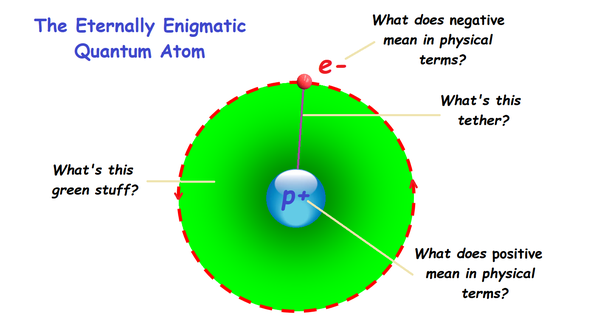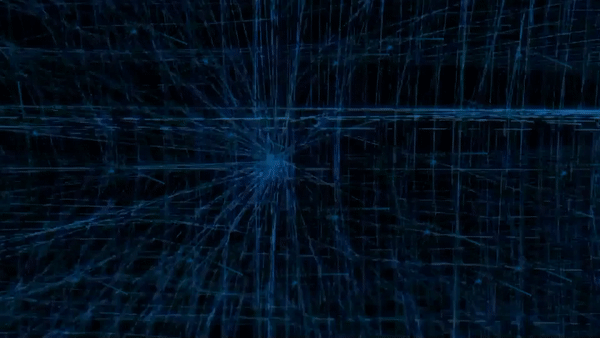The old sales pitch was that a tiny bead known as the electron revolves around a positive bowling ball known as the proton. Of course, in the last 3000 years no one in Mathematics has defined positive or negative in physical terms, and yet, the mathematicians tell the world that Math is the language of Physics.
What medium keeps the electron faithful to the proton? Why doesn’t the electron simply fly away?

The new sales pitch is that a particle is actually an excited field. And a field is a ‘bunch of values around an object’. It is these abstract bees buzzing around a hive that non-physicists pretend to vibrate.
The infinite vibrating ‘field’ of Quantum Mechanics.
After a hundred years, the mathematical physicists have finally concluded that a ‘particle’ such as an electron is simply an excited field… which is essentially a bunch of values surrounding an object…
